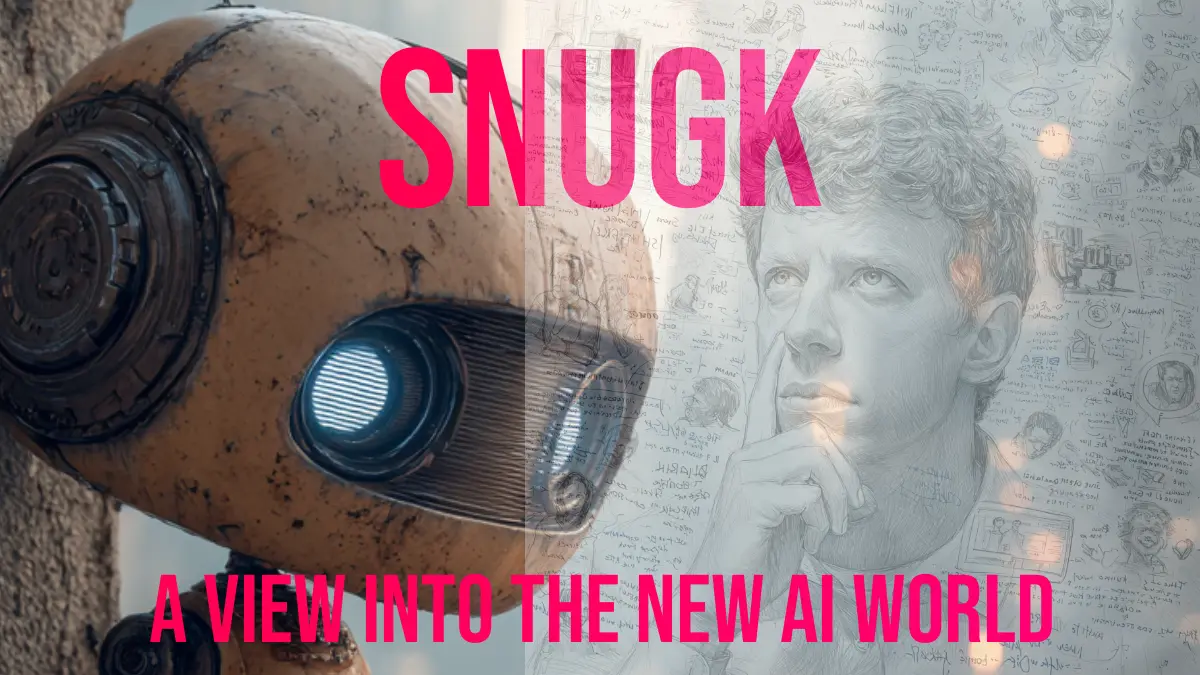Source: YouTube | TED
The Dawn of AI Companions: Sam Altman’s TED2025 Revelations
Imagine sitting in a TED audience, watching a video generated by AI that eerily predicts Sam Altman dropping bombshells on stage. That’s how Chris Anderson kicked off this electrifying 2025 TED interview with OpenAI’s CEO. If you’ve ever wondered what keeps the wizard behind ChatGPT up at night—or what jaw-dropping innovations are next—this chat is a must-read. Altman, ever the calm visionary, fielded tough questions on everything from stolen creativity to world-ending risks, all while painting a picture of a future where AI isn’t just a tool, but an extension of ourselves.
From Sora Magic to Everyday Superpowers
Anderson wasted no time demoing OpenAI’s latest toys. He fired up Sora, the video generator, to visualize Altman “sharing shocking revelations” at TED—complete with spot-on outfits and a dash of dramatic flair. “Not bad, right? Five fingers on all hands?” Anderson quipped. Altman graded it a B+, but the real wow came from a simple diagram distinguishing intelligence from consciousness. “This is so simple, but it’s incredible,” Anderson said. Altman explained it’s powered by GPT-4o, blending raw smarts with creative flair.
But it’s not all fun and pixels. What about jobs? As a management consultant, Anderson worried: “Uh-oh, what does my future look like?” Altman flipped the script: History shows tech revolutions amplify us, not replace us. “Capabilities will increase so dramatically that it’ll be easy to rise to that occasion.” He even chuckled at a profound Sora image of Charlie Brown pondering his AI existence—meta, right? Yet, Altman admitted, we can’t tell if it’s “thinking” or just pattern-matching from training data. If it fools us, does it matter?
The Creativity Clash: Theft or Inspiration?
The room buzzed when IP theft hit the spotlight. Anderson showed ChatGPT mimicking journalist Carol Cadwalladr’s style—impressive, but unconsented. “I did not consent to this,” she noted earlier. Altman pushed back: OpenAI blocks direct copies of living artists or exact songs, but styles? Trickier. “Every time throughout history, we have put better technology in the hands of creators… we collectively get better creative output.”
He called for a “new model around the economics of creative output”—think revenue shares for opted-in artists. What if you prompt “art in the style of seven people who’ve consented”? How to split the cash? Big questions, Altman admitted, but democratizing creativity could spark amazing novels and art we all love. Still, he empathized with scared creators: “The difference between feeling your work’s being stolen… and feeling it’s amplified—those are such different feelings.” Some artists rage; others rave about the “most amazing tool ever.” The key? Shift to empowerment.
Open Source Wars and ChatGPT’s Rocket Ride
Enter the competition drama: How shaken was Altman by open-source upstarts like DeepSeek? “Open source has an important place,” he said, dropping news of OpenAI’s first community session to build a “very powerful” model—frontier-level, better than rivals. But with GPUs scarce (“I call people and beg them”), scale matters. DeepSeek’s launch? Barely a blip amid ChatGPT’s insane growth.
Speaking of which, Altman shared a “shocking” stat: 500 million weekly active users, doubling in weeks. “I’ve never seen growth like this,” Anderson marveled. Teams are “exhausted and stressed,” but it’s thrilling. Future perks? Enhanced memory that “gets to know you over your lifetime,” turning AI into a proactive sidekick—like in Her, but real. Upload your history, ask “Tell me about me,” and watch it nail your quirks. Queasy? A bit. Exciting? Absolutely.
The Scary Side: Safety, AGI, and Agents on the Loose
Altman isn’t blind to the dark. No secret conscious models or self-improving doomers at OpenAI, he assured. But risks? Bioterror, cyber threats, loss of control—these loom. Amid safety team exits, he touted their “preparedness framework” and iterative testing: Deploy, learn, improve. Track record? Solid, with 10% of the world using their tech safely.
AGI confusion? ChatGPT’s smart, but not general—it can’t learn on the fly or handle full tasks like booking a flight solo (shoutout to their “Operator” tool, which almost nailed Anderson’s restaurant rez but creeped him out with the credit card ask). True AGI needs autonomy, continuous improvement. Agentic AI—free-roaming bots clicking the web? That’s the real thrill (and terror). “The most interesting safety challenge,” Altman called it. Guardrails? Baked in: No trusting an agent that might drain your bank. But if bad actors unleash meme-spreading hordes? Red lines via frameworks will hold.
Superintelligence? Inevitable, exponential. Forget pinning AGI’s arrival; focus on safe scaling. Altman evolved from pushing a safety agency to industry-led testing: “We need rigorous testing… so we all get to understand what’s being released.”
Altman’s Heart: Power, Purpose, and Parenthood
Who gave Altman the “moral authority” to reshape humanity? (Thanks, o1 model, for that zinger.) Anderson probed the narratives: Visionary underdog or power-corrupted CEO? OpenAI’s for-profit pivot drew fire, but Altman defended: Mission intact—safe AGI for all. Tactics shifted with realities (capital, safety unknowns), but they’ve empowered millions.
Elon Musk’s “ring of power” jab? Altman laughed it off, insisting daily life feels “shockingly the same.” Fatherhood, though? Game-changer. Holding his son sparked “wild biological” love AIs can’t touch, amplifying his duty: “I really cared about not destroying the world before. I really care now.” On slowing the race? It’s not a sprint; pauses happen for safety. But inevitability? Like physics discovered—embrace with caution, or get left behind.
A World of Abundance Awaits
Wrapping up, Altman envisioned his son’s future: No “broken iPad” confusion for kids in an AI-native world. Abundance, supercharged impact, pity for our “limited” lives. “They lived such horrible lives… the world sucked so much.” Thrilling? Yes. Moral minefield? Absolutely. As Anderson cheered, “Everyone here will be cheering you on to do the right thing,” Altman promised: “We will do our best.”
This interview isn’t just tech talk—it’s a roadmap to our AI-powered tomorrow. Optimistic yet grounded, Altman urges us to shape it wisely. What’s your take: Ally or apocalypse?
